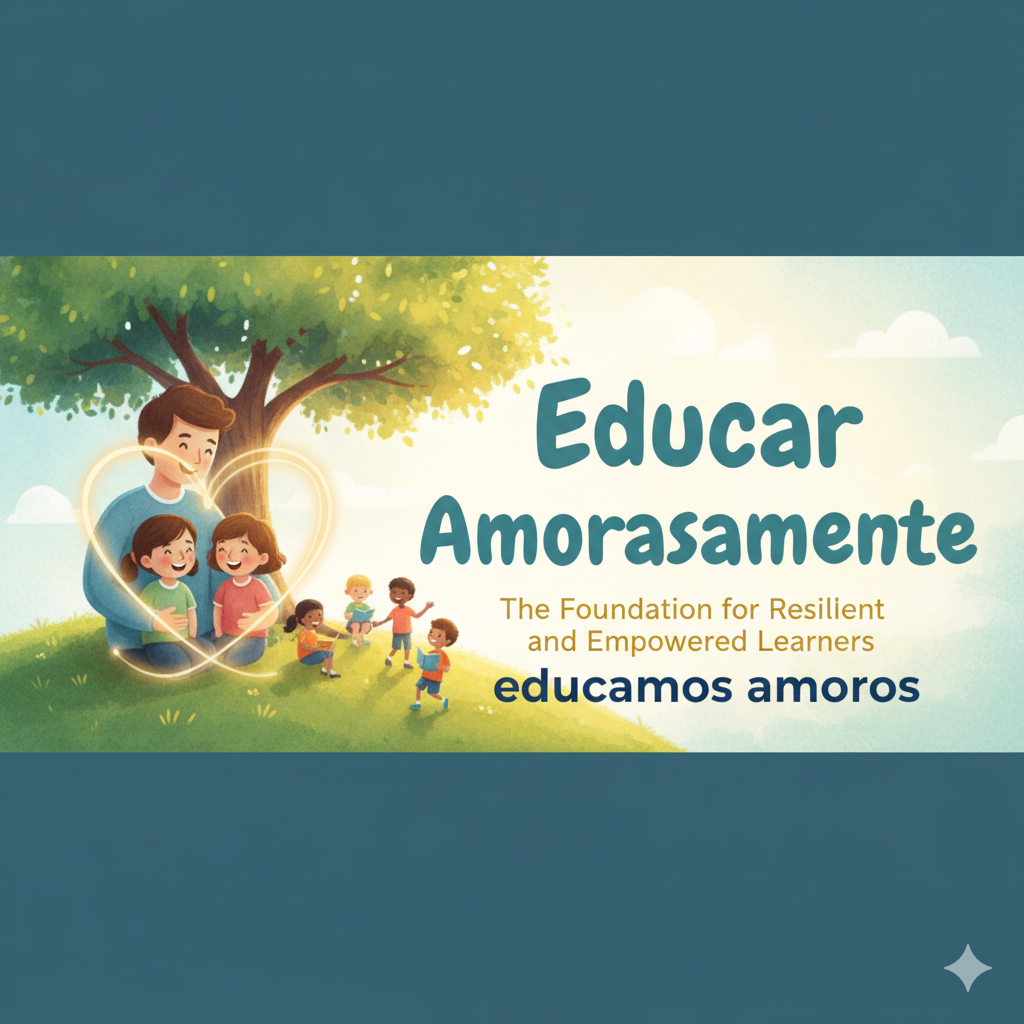Introduction
Education often faces a tough debate. On one side is academic rigor; on the other, emotional well-being. However, current research strongly supports a more balanced path: educar amorosamente. This phrase means “educating with love.” Importantly, it is not a permissive style. Instead, this approach is a conscious and deliberate choice. It builds a strong emotional foundation for all learning. Consequently, this foundation nurtures resilient and empowered lifelong learners. Ultimately, when we educamos amorosamente, we build strong minds and kind hearts together.
The Misunderstood Strength of Loving Guidance
At first glance, some people mistake educar amorosamente for having no rules. In reality, this is a significant misunderstanding. Conversely, loving education requires clear and consistent structure. For instance, consider that a child’s brain naturally seeks connection. When a child feels safe, their brain’s fear center calms down. As a result, their cognitive brain can function at its best, managing logic and self-control effectively.
Imagine two students facing a hard math problem. One fears failure, so stress blocks their thinking. By contrast, the other feels supported by their teacher. Therefore, they see a fun puzzle rather than a threat. They try, make mistakes, and try again. This example shows the power of an environment where we educamos amorosamente. In summary, resilience comes from supported practice, not from avoiding failure.
How Safety Fuels Learning
Children learn best when they feel psychologically safe. Fortunately, loving and responsive care builds this essential security. A secure child naturally becomes a braver learner. They tend to explore more and ask more questions. Moreover, they take more intellectual risks. Why? Simply because they trust their safe person is there for them. This courage, in turn, creates deep curiosity. Thus, it transforms learning from mere memorization to genuine understanding. In essence, connection directly builds courage.
Building the Pillars of Empowerment
Empowerment is all about fostering agency—the belief that your actions matter. A loving education intentionally builds this belief every day.
1. Giving Voice and Choice
This framework actively provides children with real choices. For example, they might pick a book or decide how to present a project. This practice demonstrates deep respect. It clearly tells the child, “Your voice matters.” Similarly, when we educamos amorosamente, we make the learning process a true partnership.
2. Teaching Emotional Skills
To educar amorosamente is to view feelings as important signals, not as disruptions. Therefore, we teach children to identify their emotions accurately. Next, we give them practical tools for management. An empowered learner might feel anger but chooses not to explode. Instead, they recognize the emotion and select a calmer response. Ultimately, this crucial skill helps them in school, friendships, and their future careers.
Guiding Behavior with Empathy
This method proves most valuable during difficult moments. Whether dealing with a tantrum or a bad grade, our response is critical. We educamos amorosamente by leading with empathy first. Afterward, we can set firm limits with kindness. This consistent response teaches a vital lifelong lesson: a child’s worth is constant and never based on perfect behavior.
The Long-Term Harvest: Resilient Adults
The benefits of this approach truly last a lifetime. Firstly, resilient children grow into adaptable adults who handle life’s changes with confidence. Secondly, empowered children often become innovators and leaders, believing they can make a difference. Finally, children taught with compassion become compassionate adults themselves. As a result, they go on to build kinder, more empathetic communities.
In conclusion, the field of education is positively changing. It is increasingly starting to honor the whole child. Central to this shift is the powerful choice to educamos amorosamente. Therefore, it is a profound investment in a better future for all—a future built firmly on love, respect, and a unwavering belief in human potential.
Frequently Asked Questions (FAQ)
Q1: Does “educar amorosamente” mean no rules?
On the contrary, boundaries are absolutely vital. However, educar amorosamente means establishing clear and respectful rules. Furthermore, consequences focus on teaching, not punishing. They are designed to connect logically to the behavior, which helps children learn genuine responsibility.
Q2: Is this approach too soft for the real world?
Actually, it specifically prepares children for reality. For instance, the modern world highly values collaboration, problem-solving, and emotional management. Interestingly, this philosophy builds these exact, critical skills. Therefore, we are not shielding children from challenges; instead, we are equipping them with robust tools to overcome them successfully.
Q3: What if I lose my patience?
It’s important to remember that everyone loses patience sometimes. Fortunately, educar amorosamente is about your consistent intention, not achieving perfection. In fact, sincerely apologizing after a hard moment is a powerful teaching tool. It effectively shows a child how to handle humility and repair relationships, which is a valuable life lesson.
Q4: How can I start if I was raised differently?
Begin with small, manageable steps. For example, try listening to a child without immediately offering a solution. Similarly, you can practice naming your own feelings out loud. Most importantly, make a habit of connecting with the child before you correct their behavior. Ultimately, this journey begins with just one conscious choice for a more connected relationship.


2 Comments
Pingback: Measuring and Recipe Educational IEP Goals: A Practical Guide for Teachers and Parents - Business Financial News
Pingback: Postgraduate Study in the UK: A Comprehensive Guide to Academic Excellence and Career Advancement - Business Financial News